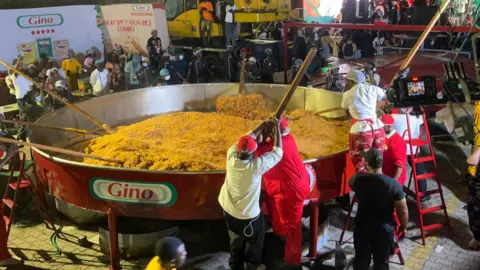A devastating boat accident in Niger State, north-central Nigeria, has claimed dozens of lives, adding to the country’s troubling record of inland waterway tragedies. According to local officials, the boat, which was carrying more than 100 passengers, capsized on the River Niger near Mokwa, leaving scores dead and many others missing.
The passengers were mostly traders and farmers traveling to local markets with goods such as food items, firewood, and livestock. Survivors recounted that the boat was overloaded and that strong river currents caused it to tip over. "The boat was shaking even before we got to the middle of the river," said one survivor. "Suddenly, it capsized, and people started screaming and struggling for their lives."
Rescue operations were immediately launched by local divers, the Nigerian Inland Waterways Authority (NIWA), and emergency agencies. However, poor visibility and a lack of proper equipment hampered the efforts. Authorities confirmed that dozens of bodies had been recovered, while many more remain unaccounted for.
Boat accidents are not new in Nigeria, particularly in rural communities where waterways are a primary means of transportation. Each year, hundreds of people die in similar incidents across states such as Niger, Kebbi, Sokoto, and Kwara. The common causes are overloading, poor enforcement of safety regulations, use of old or poorly maintained boats, and lack of life jackets for passengers.
Governor Mohammed Umaru Bago of Niger State expressed deep sorrow over the tragedy and pledged government support for the victims’ families. "This is an avoidable disaster," he said. "We must enforce strict safety measures on our waterways to prevent a recurrence." The federal government also sent condolences, with President Bola Tinubu calling for urgent reforms to improve transport safety on Nigeria’s rivers.
Experts say the tragedy highlights the neglect of water transport infrastructure in the country. Despite Nigeria having one of the largest inland waterway networks in Africa, investment in safety equipment, modern ferries, and regulatory enforcement remains weak. "Until Nigeria takes water transport safety seriously, these accidents will continue," said maritime analyst Captain Jide Oke. "We need a combination of stronger laws, community education, and better infrastructure."
For families in Mokwa and surrounding villages, the accident has left deep scars. Many victims were breadwinners, and their loss has thrown households into despair. Community leaders have called for government relief packages, including food, financial support, and counseling for grieving families.
Civil society organizations are also pressing for public awareness campaigns on safe boating practices. They argue that training boat operators, enforcing passenger limits, and making life jackets mandatory could significantly reduce fatalities.
As rescue efforts continue, the Mokwa boat accident serves as a painful reminder of Nigeria’s broader transportation challenges. While road and air safety often dominate public discussion, river transport — used daily by thousands of rural Nigerians — remains dangerously overlooked. Without urgent action, tragedies like this will continue to repeat, leaving communities devastated and families broken.



